 I’m only a little behind in saying Happy World Egg Day. Thanks to Novus International for bringing it to my attention. Of course the day is meant to raise awareness of the benefits of eggs and it was officially yesterday but better late than never. The photo below is from the Novus office cafeteria.
I’m only a little behind in saying Happy World Egg Day. Thanks to Novus International for bringing it to my attention. Of course the day is meant to raise awareness of the benefits of eggs and it was officially yesterday but better late than never. The photo below is from the Novus office cafeteria.
Here’s part of the message from Novus:
Over time, the egg industry has experienced quite a few changes. Today, an average hen will lay over 250 eggs in a given year. These numbers are attributed to genetics, animal welfare and feedstuffs.
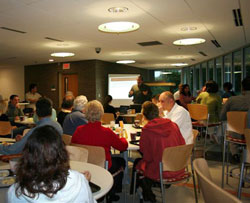 Employees were educated on nutritional quality and the benefits of eggs during egg related activities which were held throughout the day. “The complimentary meals were fantastic,” stated Sherri Armstrong, Regulatory, Novus International. “Learning that eggs are the highest quality of protein available really surprised me.”
Employees were educated on nutritional quality and the benefits of eggs during egg related activities which were held throughout the day. “The complimentary meals were fantastic,” stated Sherri Armstrong, Regulatory, Novus International. “Learning that eggs are the highest quality of protein available really surprised me.”
In addition to educational presentations about the egg, employees enjoyed a complimentary breakfast and lunch which consisted of egg based dishes like: omelets, french toast, quiche, crepes and egg soup.
“Eggs are an important part of our business at Novus,” stated Jared Hux, Product Manager, Novus International. “I really enjoyed educating my colleagues on the history, benefits and varieties of eggs on the market. I am already looking forward to next year’s celebration”.

 Natural Resources Conservation Service (NRCS) Chief Dave White announced this week that they received nearly 21,300 applications to participate in the CSP, covering more than 33 million acres nationwide.
Natural Resources Conservation Service (NRCS) Chief Dave White announced this week that they received nearly 21,300 applications to participate in the CSP, covering more than 33 million acres nationwide. 
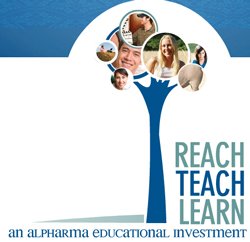
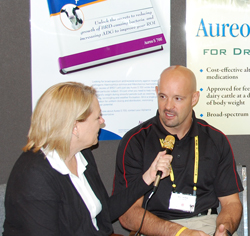 “Essentially the program is designed to reach out to our youth – elementary, high school, college-level students – our future leaders of tomorrow, to promote agricultural awareness,” Lance told me. “It’s not about products, it’s just about reaching out to the youth.”
“Essentially the program is designed to reach out to our youth – elementary, high school, college-level students – our future leaders of tomorrow, to promote agricultural awareness,” Lance told me. “It’s not about products, it’s just about reaching out to the youth.”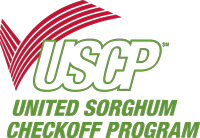 The United Sorghum Checkoff Program has
The United Sorghum Checkoff Program has 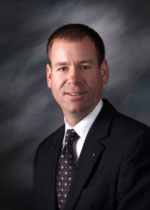 The
The 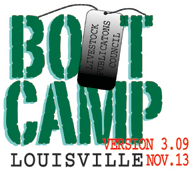 It’s time for another
It’s time for another